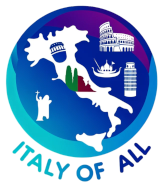The province of Taranto, located in the Apulia region of southern Italy, is a fascinating area known for its strategic geographic position on the coast, historical richness, and significant industrial sector. It combines ancient heritage with modern challenges and opportunities, making it a unique region in Italy.
Geographically, Taranto is marked by its positioning between the Ionian Sea and the internal landscapes of Apulia. The province features diverse environments ranging from the beautiful coastline with clear waters and sandy beaches to fertile agricultural plains that are vital for local farming. Notably, the Gulf of Taranto is a crucial area for both its natural beauty and its economic activity, particularly maritime and industrial operations.
Taranto’s history is deeply layered, dating back to its foundation as a Greek colony in the 8th century BC. Known in antiquity as Taras, it was famed for its wealth and power in the classical world. The archaeological heritage includes well-preserved relics like the Spartan temples and the Aragonese Castle, which still dominates the old city. The National Archaeological Museum of Taranto (MArTA) houses one of the most important collections of Greek and Roman artifacts in Italy.
The industrial base of Taranto is significant, centered around one of the largest steel plants in Europe and a substantial naval yard. While these industries have contributed to the economic output, they have also posed environmental and health challenges for the region, prompting ongoing debates and actions towards sustainable development and cleaner industrial processes.
The cuisine of Taranto reflects its coastal and agricultural surroundings, with a focus on seafood and fresh local produce. Signature dishes like “mussel soup” and “tiella” (a baked dish made with rice, potatoes, and mussels) showcase the blend of flavors from the sea and the land.
Economically, besides the heavy industry, Taranto’s economy also benefits from agriculture, particularly olive oil and wine production, and is seeing growth in the tourism sector. The attractive coastline, historical sites, and cultural festivals are increasingly drawing visitors, which in turn supports local crafts and businesses.
Despite facing significant socio-economic challenges, including environmental issues and economic diversification, Taranto is working towards revitalizing its economic base and promoting its rich cultural heritage and natural beauty. Efforts to balance industrial activity with environmental conservation and to enhance the quality of life for its residents are central to its future development plans.
Overall, the province of Taranto is a region where past and present converge, offering a unique blend of historical depth, natural beauty, and industrial prowess, making it an integral part of Italy’s diverse landscape.
Comuni in Taranto Province:
